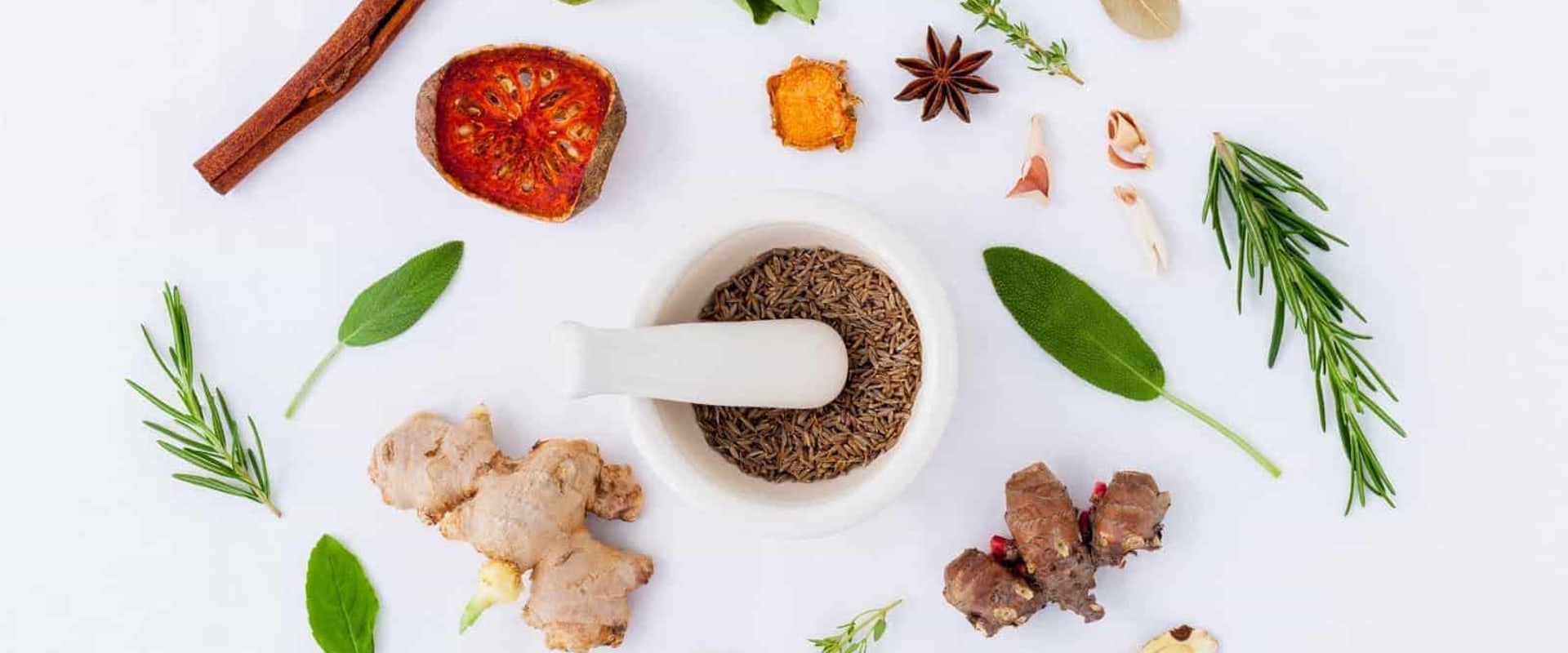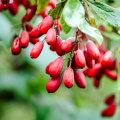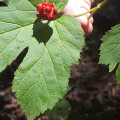Natural nootropics have been shown to stimulate brain function while at the same time making the brain healthier. They are all sources of natural nootropics, or cognitive enhancers, that are used for brain health. While they may be new to many of us, nootropics have been used in both Chinese medicine and Ayurvedic healing for thousands of years. There are a wide range of brain stimulators available, but some come with safety concerns and side effects.
That's why it's so important to know what to look for when starting a search for nootropic supplements. The first distinction to be made is between synthetic and natural nootropics. If the side effects of synthetic nootropics are not enough reason to avoid them, consider the abundance of natural nootropics found in the natural world. Plants and herbs offer a wide range of adaptogenic or stress-relieving compounds that help increase concentration and relaxation.
Natural nootropics are much safer than synthetic forms because, in their purest version, they do not produce side effects similar to other neuropsychotropic drugs. Look for high-quality nootropic herbs that are standardized or that include certain trademarks or labels, such as GMP, which denotes good manufacturing practices. Also look for nootropics without artificial ingredients or common allergens. Safety-conscious manufacturers will clearly define the presence of ingredients and allergens, such as gluten, soy and dairy products.
Here's a look at the best natural nootropics and how they support the mind and body. Brahmi, or Bacopa monnieri, is a fundamental herb in Ayurvedic medicine. It thrives in humid and tropical environments and can survive well underwater. Similar to many other natural nootropics, the plant, its extract and isolated bacosides are known to support mental performance while reducing stress and also have anti-inflammatory properties.
Another advantage of supplementing with Bacopa Monnieri is that it contains adaptogens, which fight free radicals and oxidative stress that are linked to many modern lifestyle diseases, including heart disease, diabetes and cancer. Ginseng is one of the oldest and most popular adaptogenic herbs. Coming from traditional Chinese medicine, it is a long light brown root with green leaves and a bitter taste. The two most popular varieties are American (Panax quinquefolius) and Asian (Panax ginseng), both of which have a positive effect on the immune system.
Ginseng May Support Healthy Blood Sugar Levels and Increased Concentration May Help with Menopause, Cancer, Blood Pressure and Heart Disease. Since ginseng is a powerful herb, it has the ability to interact with other medications and may not be a good choice for people taking certain medications, so you should consult with your doctor before taking ginseng as a supplement. Also known as rose root, arctic root or golden root, rhodiola rosea is a mountain herb that grows in cold climates. It contains more than 140 active ingredients and has antidepressant and anti-fatigue effects, and is also used to treat anxiety in Russia and Scandinavia.
To test its antidepressant effects, a study compared rhodiola with the antidepressant drug Zoloft whose active ingredient is sertraline. The findings showed that while the chemical drug had a greater effect on reducing general symptoms of depression, the herb was easier to tolerate because it usually had no side effects. Exuberant and leafy, ginkgo biloba is one of the oldest living tree species. It is a popular natural nootropic that can have a positive effect on cognitive function, anxiety and stress management.
In addition, studies have shown the use of the herb to reduce symptoms of mild cognitive impairment and Alzheimer's disease. Gingko can play an important role in improving blood flow, which can help maintain arterial health and reduce the likelihood of stroke. Other studies show the positive effects of Gingko on eye health. More research is needed, but preliminary findings suggest that ginkgo biloba supplementation may be beneficial in treating age-related macular degeneration, the leading cause of vision loss.
The body only produces a very small amount of choline in the liver; however, it is not enough to meet the needs of humans. Therefore, we must get it from our diet or from a choline supplement. Choline is often grouped with B vitamins because of its essential role in regulating liver function, metabolism, brain development, and muscle movement. Although choline deficiency is rare, certain groups of people may be more at risk.
These include endurance athletes, postmenopausal women, pregnant women, and people who consume large amounts of alcohol. Piracetam is a natural nootropic that, like many others, is used for cognitive enhancement. It has been discovered that Piracetam can help working memory, intellectual function, learning and concentration. Studies have also shown that Piracetam improves ATP production, but when it comes to treating cognitive impairment, the right dosage is key.
A study of older adults showed a significant difference in cognition improvement with a dose of 1,600 mg three times daily. However, there was no difference in cognition with patients receiving 800 mg three times daily. Increased interest in brain health and productivity has led to a variety of synthetic supplements, but not all of these compounds are of concern. Since many synthetic nootropics can have side effects, natural nootropics are a much healthier and safer alternative.
Whether it's improving mental performance, reducing the risk of disease or increasing your resilience against stress, natural nootropics offer a wide range of benefits for general well-being and cognitive fitness. Understanding how to incorporate these supplements into your life can help you better understand and optimize your health. Ginkgo biloba has also been shown to help in dementia. In the Anatomical Therapeutic Chemical Classification system, ginkgo is listed as a drug against dementia.
A research study found that ginkgo along with anti-dementia drugs may benefit patients with dementia if taken consistently for a year. However, the results of research studies on the overall effectiveness of ginkgo with these health conditions are mixed. Rhodiola rosea, also known as the “golden root”, is an arctic root that is most widely found in the colder regions of Europe and Asia. The root is most widely used in those regions to treat depression and prevent altitude sickness.
In addition, research has found that rhodiola can relieve mental fatigue in healthy adults. The root is essentially an adaptogen or supplement that provides cells with the ability to balance in response to inflammation. Some are even found inside the body, such as acetyl L-carnitines and B vitamins, specifically vitamin B12, known for its effects on cognition. Caffeine is commonly found in coffee, cocoa, green tea, cola and energy drinks, making it one of the most popular and widely used nootropics.
You can usually take this natural nootropic in the form of food and drink. However, you can also take caffeine as a standalone supplement or in combination with other supplements such as nootropic stacks. This substance works by blocking adenosine receptors to prevent their binding with the neurotransmitter adenosine, resulting in slower neuronal activity and drowsiness. This event also leads to faster neural activity.
You may experience shorter reaction times and less tiredness with caffeine intake. It is known that Ginkgo Biloba extracts positively affect cognitive function, since they are used in Chinese medicine for this purpose. Studies say it helps improve memory, especially age-related memory impairment, and improves mental performance in older adults. Another benefit of Ginkgo Biloba is the reduction of high blood related to stress and the stress hormone called cortisol.
Bacopa Monnieri, also known as Brahmi, is an herb used in ancient Ayurvedic medicine. It is a powerful herb that improves cognitive performance, such as memory, focus and helps a faster response. These benefits are gained due to the bacosides present in Bacopa Monnieri that stimulate brain signals in the hippocampus. It also protects the brain from possible oxidative stress and contains adaptogens that fight free radicals.
It will be a long time before you can feel the effects of this substance. Several months of use with a dosage of 300-600 mg daily support maximum benefits. Rhodiola Rosea Helps Your Body Control Mental Fatigue. In countries such as Russia and Scandinavia, a review showed that this supplement serves as a treatment for anxiety due to its antidepressant and anti-fatigue qualities.
Small doses of this natural nootropic every day are sufficient when it comes to stress and fatigue before exams. However, Rhodiola Rosea needs more research to determine its standard dosage and how it produces its effects. A natural amino acid, L-theanine, is commonly present in green tea, but you can take it as a nootropic supplement. It promotes mental clarity without causing drowsiness and boosts spirit-uplifting mood-enhancing neurotransmitters.
The substance L-theanine has neuroprotective effects that generate and restore nerve cells, making it an excellent therapeutic supplement for patients with high anxiety. A dose of just 50 mg of L-theanine increases alpha waves, affecting your creativity. Omega-3 fatty acids are considered to be the most important supplement for brain function, earning its title as the “brain food”. These fatty acids are cognitive enhancers that improve mental function and blood flow.
It affects cognition, such as memory loss, mental fatigue, creativity and attention, considering it one of the best nootropics for memory. Omega-3 fatty acids are beneficial to the overall brain health of healthy adults and even young people. They can be found in different types of food, but they are often not enough, so another source of nootropics is recommended. Cogmetics Ltd, Sovereign House Flat 1 Grand ParadeBN21 3YP EastbourneUnited Kingdom.
L-theanine is a natural amino acid found in tea, but it can also be taken as a supplement (. Simply put, natural nootropics are substances or nutrients that affect mental performance. While they may have become something of a buzzword in the health and fitness industry in recent years, they have been used for thousands of years in both Chinese medicine and Ayurvedic healing. Caffeine, found naturally in cocoa, coffee and non-herbal teas, is the world's most consumed psychostimulant.
Because of its well-known ability to stimulate the brain, it is most often used to increase energy, usually in the form of a cup of coffee in the morning. Studies show that caffeine blocks receptors for the neurotransmitter adenosine, which increases excitability in the brain and makes you feel less tired. Although caffeine may improve reaction time, clinical trials conclude that it does not usually affect performance in learning and memory tasks. Studies show that L-theanine is even more effective when combined with caffeine, so these two nootropics are often combined as natural nootropic stacks.
More on this below. Caffeine alone can cause headaches and nervousness, but when combined with L-theanine it creates a calming but alert effect. Natural nootropics are usually made from plants or plant extracts, amino acids and other nutrients from nature. Many natural nootropics are used in alternative medicine, but their effects are usually more subtle and slower acting.
Since they cannot ingest this smart drug through natural means, they will have to take synthetic nootropics instead. Omega-3s, found naturally in cold-water fish, are the essential fatty acids needed for brain development. However, not everyone gets enough of these essential brain stimulators from diet alone, so fish oil supplements (or microalgae supplements for vegetarians and vegans) are an important source of these natural nootropics. As a natural nootropic, creatine supplementation helps to recharge the adenosine triphosphate (ATP) produced by mitochondria, and then ATP is used as a cellular energy source.
If you like a cup of green tea, then you're reaping the benefits of L-theanine, a natural amino acid in tea that is known for its ability to induce mental clarity and, at the same time, have a relaxing effect that doesn't produce drowsiness. This demand for productivity has increased sales of natural and synthetic nootropics worldwide. With natural nootropics, if you don't have time to research, buying a pre-formulated compound is advisable and probably safer. An amino acid found naturally in tea, research into the use of L-theanine as a unique ingredient tends to promote its relaxing properties.
Natural nootropics significantly improve your cognitive function, and some of them can be easily found even in your daily foods. But most find that more than one natural nootropic is needed to relieve symptoms of brain-related health problems. Once you've done a thorough assessment of your own state and personal health goals, natural nootropics can open up a world of limitless possibilities. .
.




